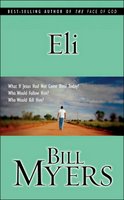Vatican Tries to Break "Da Vinci Code"
Yahoo! News: "... Monsignor Angelo Amato, the number two official in the Vatican's powerful doctrinal office, has urged Catholics everywhere to boycott the upcoming Tom Hanks film [The Da Vinci Code] on the basis that it patently 'offended' the Christian faith. In his proposal to boycott the would-be blockbuster film, Amato expressed bafflement as to why church followers failed to be outraged about the book in the way that, say, Muslims were about the recent Mohammed cartoons. He claimed a similar book about that religion would have sparked a 'global rebellion.'"Once again I come across a knee-jerk reaction to a thought provoking book, and that reaction is that someone stops thinking. At no point in this book -- and I've just completed my third reading, the first without stopping every page or so to research something -- does the author make a judgement regarding the validity of God's Word. Many of the characters question the familiar Biblical story of Jesus of Nazareth, but neither they nor the author dispute that Jesus was the Christ, our Savior.
By many means throughout Dan Brown's The Da Vinci Code questions are raised about the historical accuracy of the texts that make up the Bible. I can see where this would trouble many, particularly those that believe the Bible is a word-for-word truth. But I think that they and those that try to discredit faith in Bible miss the point of the Gospels. There may have been some intent to use the content as an historical record, but the primary purpose has always been to serve as "Basic Instructions Before Leaving Earth -- B.I.B.L.E.," a guide to spirituality, faith, and God's love.
If absolute, letter-perfect communication was a requirement then why is the Bible so full of parables, allegories, and varying accounts of the same events? Code readers (and non-readers who go to the movie) can think through any supposed rhetoric if they choose and see that in its sum the story is about the quest to be closer to God, to know Him better, and to make sense of why we are on Earth anyway. In each reading of Brown's book I felt my faith grow as I reasoned through what I feel is the true meaning in the book (though the author may claim no such thing exists, as far as I know) -- it is fiction written to make the author and his publisher some money.
Yes, it is that simple. Take away the fantastic claims that some of the characters make and you wouldn't have much of a story and a much, much shorter book. But if one looks at said claims with a critical eye it can become a potent tool for discovering Christ and growing in His love. Then the book becomes something more. And I believe it is more than what the Catholic church and other well-meaning Christians propose. My advice it to read it if you are inclined to do so, or go see the movie if that is more your style, but don't fall for it. There are sufficient articles and essays on the Internet, on TV, and published on good-old paper that take many of the book's "facts" to task that even cursory research reveals that only the uninformed could take the story as a "gospel" itself.
Disclaimer: I belong to the Pocket Testament League, a wonderful group who is among many that ardently "fight" The Da Vinci Code. Ray Comfort's Living Waters site and teachings are also a favorite of mine but it is very clear from recent newsletters that he feels we should go see The Chronicles of Narnia one more time rather than see Code. And that is fine with me because each of us minister's Christ's Word in a different way.
Those that know I am a Christian and a Freemason have already approached me regarding issues raised by Brown's book/movie and I've use this as an opportunity to share my faith. They ask if all this is true. Was Jesus married to Mary Magdalene? Did they have a child? Am I part of the conspiracy to hide the truth (that from my Catholic aunt who first told me about the book)? To all of which I reply that this is simply a story and that the real truth is that Jesus is God's only son and he died for our sins. Everything else is immaterial.




